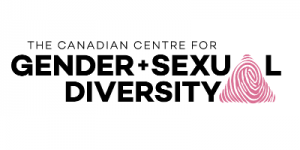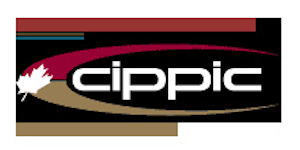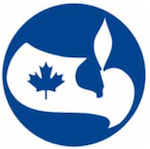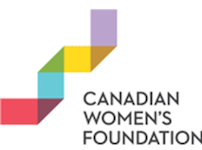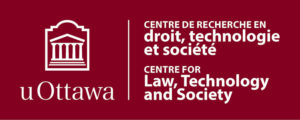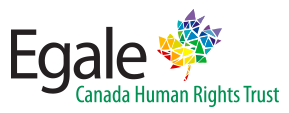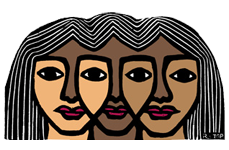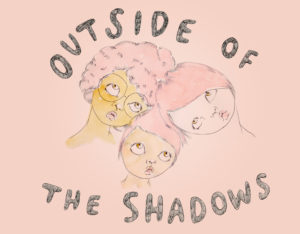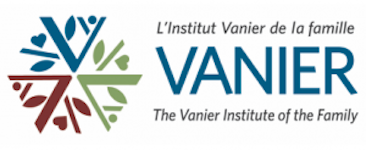ALBERTA TEACHERS’ ASSOCIATION
The Alberta Teachers’ Association, as the professional organization of teachers, promotes and advances public education, safeguard standards of professional practice and serves as the advocate for its members. The business of the association is transacted by an executive committee of 20 persons known as Provincial Executive Council, which, in turn, oversees the work of the Association’s approximately 150 staff members. Through the Teaching Profession Act (TPA) the Association is the legislated voice for Alberta’s certificated teachers and principals.
Phil McRae
Executive Staff Officer
Dr. Phil McRae is an Executive Staff Officer with the Alberta Teachers’ Association and Adjunct Professor within the Faculty of Education at the University of Alberta where he earned his Ph.D. He was the Director of the internationally recognized Alberta Initiative for School Improvement (AISI) at the University of Alberta from 2005-2009, and taught several graduate courses in the Master of Education in Educational Studies program. Phil has worked in many secondary and post-secondary educational contexts while living and teaching in the Middle East (United Arab Emirates), Asia (Japan), Europe (Spain), and in Alberta, Canada with the Lethbridge Public School District and on the Blood (Kainai) Reservation.
THE CANADIAN CENTRE FOR GENDER & SEXUAL DIVERSITY
The Canadian Centre for Gender and Sexual Diversity (CCGSD) intersectionally promotes diversity in gender identity, gender expression, and romantic and/or sexual orientation in all its forms on a national level through services in the areas of education, health, and advocacy. Our resources and programming can be used to uplift gender and sexual minorities, as well as give the tools to wider populations in building allyship. The Canadian Centre for Gender and Sexual Diversity aspires to support and transform Canadian and indigenous communities from coast to coast to coast in a shared vision of a discrimination-free gender and sexually diverse world.
Jeremy Dias
Director
Jeremy Dias was born in Edmonton, Alberta, and grew up there until moving to Sault Ste. Marie, Ontario, where he attended high school. As a youth, he was motivated by social and political inequality to take action, volunteering with numerous organizations and charities. The CCGSD, then known as Jer’s Vision, was founded by Jeremy Dias and a 6 member board in 2005, following Dias’ legal case against his school board. It Started originally as a scholarship, the organization grew to a range of programs that engage schools in examining the culture of their school and providing them with programming to address challenges around bullying, homophobia, transphobia and discrimination. In March of 2015, Jer’s Vision changed its name to the Canadian Centre for Gender and Sexual Diversity.
CANADIAN INTERNET POLICY AND PUBLIC INTEREST CLINIC
The Samuelson-Glushko Canadian Internet Policy & Public Interest Clinic (CIPPIC) is a law and technology clinic based at the Centre for Law, Technology & Society at the University of Ottawa’s Faculty of Law in Canada. CIPPIC’s mandate is to advocate in the public interest on diverse issues arising at the intersection of law and technology. In pursuit of its public mandate, CIPPIC regularly provides expert testimony before Canadian parliamentary committees, participates in the regulatory activities of various Canadian quasi-judicial bodies such as the Office of the Privacy Commissioner of Canada and the Canadian Radio-television and Telecommunications Commission, appears at all levels of Canada’s judicial system, and participates in various international Internet governance fora. In addition, CIPPIC advises clients (organizational and otherwise) on matters with a public interest dimension, provides public education resources on various legal issues and, by its location at the Faculty of Law, provides direct training and education for law students. CIPPIC has a dual mission: to fill voids in public policy debates on technology law issues, ensure balance in policy and law-making processes, and provide legal assistance to under-represented organizations and individuals on matters involving the intersection of law and technology; and to provide a high quality and rewarding clinical legal education experience to students of law.
David Fewer
Director of CIPPIC
David Fewer is Director of the University of Ottawa’s Samuelson-Glushko Canadian Internet Policy and Public Interest Clinic – or CIPPIC – Canada’s only public interest technology law clinic. CIPPIC’s mandate is to advocate for balance in policy and law-making on issues arising out of new technologies David joined CIPPIC in November, 2004. His work focuses on training students in: effective legal advocacy; producing public education materials; and articulating a public interest perspective in public policy debates and important court cases at the intersection of law and technology. David graduated with a B.A. in 1993, an LL.B. in 1996, and an LL.M. in 1997 – all from the University of Toronto. He has clerked at the Federal Court, practiced law at national firms in Vancouver and Ottawa, and is currently in a state of shock at the fact that all three of his children are now teenagers.
Tamir Israel
Staff Lawyer
Tamir joined CIPPIC as staff lawyer after articling with the clinic. He conducts research and advocacy on various digital rights-related issues, with a focus on online privacy and anonymity, net neutrality, intellectual property, intermediary liability, electronic surveillance, spam, e-commerce, and Internet governance generally. His advocacy activities have taken him before the courts, various regulators, parliamentary committees, and international Internet governance fora. Prior to joining CIPPIC, Tamer received a J.D. from the University of Toronto and a B.A. from the University of British Columbia. He is also a member of the Advisory Board of Privacy International and lectures on Internet regulation matters at the University of Ottawa Faculty of Graduate & Post-doctoral Studies.
CANADIAN RACE RELATIONS FOUNDATION
The Canadian Race Relations Foundation was created as a Crown agency to ” facilitate throughout Canada the development, sharing and application of knowledge and expertise in order to contribute to the elimination of racism and all forms of racial discrimination in Canadian society.” The work of the Foundation is premised on the desire to create and nurture an inclusive society based on equity, social harmony, mutual respect and human dignity. Its underlying principle in addressing racism and racial discrimination emphasizes positive race relations and the promotion of shared Canadian values of human rights and democratic institutions. It strives to coordinate and cooperate with all sectors of society, and develop partnerships with relevant agencies and organizations at the local, provincial and national levels.
Lilian Ma
Executive Director
Prior to her work at the CRRF, she has held senior positions within government and was on a myriad of administrative agencies and tribunals, involving matters of immigration & refugee status, social justice, landlord and tenant issues, public education, race relations, human rights and health for the past 30 years. A former Alternative Executive Chair of Social Justice Tribunals Ontario as well as former Associate Chair of the Landlord and Tenant Board, she is also a former Ontario Human Rights Commissioner and former member of the Immigration and Refugee Board. She was also a member of the Action Committee on Civil and Family Matters chaired by past Supreme Court Justice Cromwell. A former National President of the Chinese Canadian National Council and a former Board Director of the Canadian Ethnocultural Council, she received the Race Relations Award from the Urban Alliance on Race Relations and the Lifetime Achievement Award from the Federation of Asian Canadian Lawyers (FACL) as well as the SOAR medal from the Society of Ontario Adjudicators and Regulators.
CANADIAN TEACHERS’ FEDERATION
The Canadian Teachers’ Federation (CTF) is a national alliance of provincial and territorial teacher organizations that represent nearly 200,000 elementary and secondary school teachers across Canada. CTF is also a member of the international body of teachers, Education International.
Sherri Brown
Director, Research and Professional Learning
Dr. Sherri Brown is the Director of Research and Professional Learning with the Canadian Teachers’ Federation (CTF-FCE). She is a research methodologist with expertise in quantitative (survey design and analysis) and qualitative (focus groups, interviews) research methods. Her research interests and experiences have primarily focused on topics in education and health policy, and in particular on issues around privatization, public services and funding models and trends, and labour rights. Dr. Brown is passionate about public education, and as the parent of a Grade 3 student with severe disabilities, has extensive interests and activist engagement in working with parents, teachers, and school boards/districts to promote and support the values of public education and inclusion.
CANADIAN WOMEN’S FOUNDATION
The Canadian Women’s Foundation invest in the strength of women and the dreams of girls. The Canadian Women’s Foundation raises money to end violence against women, move women out of poverty and build strong resilient girls through funding, researching and promoting best practices. We are a leading voice for women in Canada. We target our support to women and girls who need it most. Our priority is to help women and girls who face the highest risks, such as those with a disability and those who live in urban and rural communities with the fewest services, such as remote northern communities. We also target women who are new to Canada, so they can quickly get on their financial feet. One of our biggest priorities is women and girls from First Nation, Metis, and Inuit communities, who face extremely high levels of domestic violence, poverty, and sexual exploitation.
Beth Malcolm
Director, Girls’ Fund
Beth Malcolm is the Director of the Girls’ Fund at Canadian Women’s Foundation. Beth has led the development of the Girls’ Fund, an initiative funding programs across the country working with girls nine to 13. Beth has worked with pregnant teens, single parents, adult and young offenders as well as developing a Social Enterprise funding stream at United Way.
Centre for Law, Technology and Society
The Centre for Law, Technology and Society at the University of Ottawa is the leading Canadian research hub for law, ethics and policy of technology, gathering 22 full-time Faculty members from the Faculties of Law, Social Sciences, Arts, and more than 150 researchers and students. Our Centre is a unique cluster, home to three Canada Research Chairs in the law, ethics and policy of technology and two other SSHRC Partnership Grants related to privacy, access to justice, innovation and development in the digital age. Hugely involved policy making, the Centre is also the home of the Samuelson-Glushko Canadian Internet Policy and Public Interest Clinic.
Florian Martin-Bariteau:
Director of Centre for Law, Technology and Society
Dr. Florian Martin-Bariteau is an Assistant Professor of Law and Technology at the Faculty of Law, Common Law Section and the Director of the University of Ottawa Centre for Law, Technology and Society. As a legal scholar, his research focuses on Technology and Intellectual Property Law; with a special interest in Property, Trademarks, Blockchain, Secrets and Whistleblowers.
EGALE CANADA HUMAN RIGHTS
Founded in 1995, Egale Canada Human Rights Trust is Canada’s only national charity promoting lesbian, gay, bisexual, and trans (LGBT) human rights through research, education and community engagement. Egale’s vision is a Canada, and ultimately a world, without homophobia, biphobia, transphobia and all other forms of oppression so that every person can achieve their full potential, free from hatred and bias. Egale’s work is grounded in anti-racist and anti-oppressive (ARAO) practice. While striving to compile, produce and communicate the best-available evidence, we recognize that the production of knowledge is always intimately connected to power, privilege and oppression. Often, it is those with the least power to produce and shape knowledge who are most in need of services, leaving them under-served or ill-served. As such, Egale undertakes to balance both academic and experiential knowledge, privileging community-based participatory practices in conducting research; developing and reviewing policy, resources and curricula; and providing services to clients, community organizations and individuals. In everything we do, Egale recognizes the necessity of taking an intersectional perspective in order to reflect and respond to the needs and experiences of the full diversity of LGBTQ communities
Helen Kennedy
Executive Director
Helen Kennedy is a Canadian politician and social activist. In 2007 She was named executive director of Egale Canada. Kennedy began her career as an activist and change agent with the Industrial Accident Prevention Association, where she became an advocate for workplace safety and people with disabilities, building awareness as editor of the association’s magazine. In 1985, she was hired by the Ontario New Democratic Party caucus at Queen’s Park. She served the party for 14 years, in opposition and government. During that time, Kennedy founded the East York Tenants Association, which lobbied for rent controls and tenant rights. She also established Citizens for Access, an awareness campaign to open up public buildings to people with disabilities.
Richard Mattern:
Director of Research and Policy
Richard Matern is the Director of Research and Policy at Egale Canada Human Rights Trust and leads the development of research projects related to LGBTQI2S human rights and inclusion. His past work involved leading large scale community based research projects which helped to inform the income security review process in Ontario, Canada. Richard’s was also part of the research team that developed the Ontario Deprivation Index, the first poverty measure of its kind in Canada, which was adopted by Statistics Canada and was used by the government of Ontario as an indicator for their poverty reduction strategy.
GOVERNMENT OF ALBERTA
The Alberta Status of Women Ministry was created in July 2015. The ministry works collaboratively with government and community partners to advance gender equality in Alberta, leading government’s work to integrate a gendered lens into policies and programs to improve the lives of women and girls, and thereby strengthen the province as a whole. Status of Women works to advance gender equality in Alberta in the areas of, women’s economic security, preventing and addressing gender-based violence, and increasing women’s leadership and democratic participation. The ministry works with other ministries to ensure that Alberta leads the way in advancing gender equality as an integral part of a prosperous future with full social and economic participation by all Albertans.
A more detailed description of Status of Women and its programs and initiatives can be found here.
.
HUMAN RIGHTS RESEARCH AND EDUCATION CENTRE
The Centre strives to bring together educators, researchers and students from other disciplines based on the need to approach issues regarding human rights from a multidisciplinary and interdisciplinary perspective, both in order to respect such rights and to explore that which they require in a complex, interconnected world. The HRREC benefits from a bilingual and bijuridical environment. The Centre privileges research, teaching and outreach partnerships, with academic units, governmental and civil society organizations.
John Packer
Director HRREC
Professor John Packer has recently taken up responsibilities as an Associate Professor of Law and Director of the Human Rights Research and Education Centre (HRREC) at the University of Ottawa. Prof. Packer previously held academic positions at the University of Essex where he was the Director of the world-renowned Human Rights Centre and at The Fletcher School, Tufts University. He has held Fellowships at Cambridge and Harvard Universities and lectured at universities and professional institutions around the world. He has been widely published and contributes to the editing of a number of scholarly journals. He also serves on the boards of a number of NGOs and is a Member of the Expert Advisory Panel for the Shared Societies Project of the Club de Madrid comprising almost 100 former Heads of State or Government of democracies. Prof. Packer is also an experienced practitioner bringing to the University of Ottawa some 20 years working for inter-governmental organizations, including in Geneva for the UN High Commissioner for Refugees, the International Labour Organization, and for the UN High Commissioner for Human Rights investigating serious human rights violations in Iraq, Afghanistan, Burma/Myanmar, extrajudicial executions, arbitrary detention, forced disappearances, the use of forensic sciences, the use of civil defense forces, and the independence of judges and lawyers throughout the world. From 1995 to 2004, he was Senior Legal Adviser and then the first Director of the Office of the OSCE High Commissioner on National Minorities in The Hague working across Central and Eastern Europe and throughout the former Soviet Union. For the last two years, Prof. Packer was a Constitutions and Process Design Expert on the United Nation’s Standby Team of Mediation Experts attached to the Department of Political Affairs, advising in numerous peace processes and political transitions around the world focusing on conflict prevention and resolution, diversity management, constitutional and legal reform, and the protection of human rights including minorities. Prof. Packer’s strength in the practice of international law and relations underpins his vision for applied research in public policy and a practice-orientation in the activities of the HRREC. He intends to build on the HRREC’s record of achievement, emphasizing know-how and skills for students and professionals interested in the effective realization of human rights throughout Canada and the world.
Viviana Fernandez
Assistant Director HRREC
Viviana Fernandez works as Assistant Director at the Human Rights Research and Education Centre (HRREC), University of Ottawa (uOttawa) since January 2014. Her portfolio includes the management of the operations and resources of the Centre as well as the implementation of its strategic plan (research, teaching, outreach and promotion). Viviana joined the Boards at Women in International Security Canada in 2015 and the Interdisciplinary Research Laboratory on the Rights of the Child (uOttawa) in 2014. She represents the University of Ottawa in the Scholars at Risk Network since 2014. Prior to taking up her position at the HRREC, Viviana joined uOttawa as Head of the Research Office at the Telfer School of Management in July 2004. She created the Telfer School’s Research Office with the goal to develop professors and students research capabilities and to increase the School’s share of research funding. Earlier in her career, Viviana worked at the Embassy of Chile in the United States, the Exporter’s Association of Bio-Bio Chile and the Chilean Development Corporation. Due to work and/or studies, she has lived in Chile, France, United States, United Kingdom and Canada.
MEDIASMARTS
MediaSmarts (formerly Media Awareness Network) is Canada’s leading digital literacy educational NGO and operates a bilingual, Canadian educational website containing a wide range of copyright-cleared resources to help teachers integrate media literacy and web literacy in their classrooms. MediaSmarts’ mission is that children and youth have the critical thinking skills to engage with media as active and informed digital citizens. To achieve this goal MediaSmarts develops and delivers high-quality Canadian-based digital and media literacy resources; provides leadership in advancing digital and media literacy in Canadian schools, homes and communities; and contributes to the development of informed public policy on issues related to media. To inform its work, MediaSmarts’ conducts and partners in research relating to young people and media. Its ongoing research program, Young Canadians in a Wired World (YCWW) (which set research benchmarks for children’s use of digital media), has been used to inform federal policy on the digital economy, online safety and human rights policy.
Kathryn Ann Hill
Executive Director
Kathryn has extensive experience as a senior leader in the voluntary sector; she has a Masters of Social Work (1992) from Carleton University, and a Master of Management Degree (2003) from McGill University. Her commitment to social justice has resulted in a career of over 34 years of service in the voluntary sector, from her first volunteer role as a crisis line counselor for the Montreal Sexual Assault Centre in 1984. Kathryn has served in senior leadership roles at the Ottawa Rape Crisis Centre, United Way Canada – Centraide Canada, HealthPartners Fund, Family Services Ottawa and its social enterprise, FSEAP Ottawa. She brings to MediaSmarts a career long dedication/expertise in improving social determinants of health, citizen engagement, coalition building, organizational development and knowledge exchange.
OTTAWA COALITION TO END VIOLENCE AGAINST WOMEN
OCTEVAW is an incorporated, non-profit, non-partisan organization composed of a network of member organizations and individuals located within the City of Ottawa and surrounding regions. Our members include women abuse and rape crisis agencies, victim services, child protection services, hospital and police representatives, the crown, probation and parole, health and counselling services, academic researchers and other concerned community members. OCTEVAW is a coalition of organizations and individuals dedicated to ending violence against women and, through leadership, education, advocacy and political action, to promoting a coordinated response to women and their children who have experienced abuse. In working collaboratively to achieve equality of rights, fair access to services and resources, and social justice for women and their children who have experienced abuse, OCTEVAW adheres to feminist, anti-racist, anti-oppression and pro-choice principles, and is committed to celebrating diversity, inclusiveness and the dignity of all women and their children.
Dillon Black
Campus violence prevention program coordinator
Dillon Black is a gender-nonconforming anti-violence advocate; feminist media maker meets social worker. Dillon is active in anti-violence work locally and sees community-led, anti-oppression and resiliency frameworks as central to the work they do. In the past Dillon sat on the National Youth Advisory Board for Sexual Health & HIV, partnered with the Native Youth Sexual Health Network. Currently Dillon is Prevention Coordinator with the Ottawa Coalition to End Violence Against Women, a board member of the Queer Mafia and holds a degree in Social Work from Carleton University. Dillon is an award recipient of the 2014 CHEO Healthy Kids “Health Advocacy and Public Education Award” for their contribution in the “Building Capacity for GLBTTQ Youth Mental Health Project” (YSB). Dillon is also an award recipient of “Femmy Awards 2014” (International Women’s Day) for their work in ending violence against women in Ottawa. Dillon conducted their thesis work on “Queer & trans youth “[death by] suicide”: Politicizing tragedy, reclaiming resilience & responding with “Justice-doing”.
OUTSIDE OF THE SHADOWS

UNICEF CANADA
UNICEF Canada is a charitable organization that helps deliver UNICEF’s mission to ensure the survival, development, protection and participation of every child, everywhere. As part of the UN, we are active in more countries and have saved more children’s lives than any other humanitarian organization. In Canada, we provide data and analysis and undertake policy advocacy, for and with children and youth, to help ensure their human rights and well-being.
Lisa Wolff
Director, Policy and Research at UNICEF Canada.
Lisa’s focus is to promote public policy and practices in Canada that align with the principles and standards of the UN Convention on the Rights of the Child. She leverages UNICEF’s global strengths including data and innovation and works across sectors with many Canadian partners to advance the rights of Canada’s children. Lisa is a member of the Board of Directors of PREVNet and of the Canadian Coalition for the Rights of Children. Lisa received the Queen Elizabeth II Diamond Jubilee Medal from the Governor-General of Canada in 2012.
THE VANIER INSTITUTE OF THE FAMILY
The Vanier Institute of the Family is a national, independent, charitable organization dedicated to understanding the diversity and complexity of families and the reality of family life in Canada. Through publications, research initiatives, presentations and social media, the Institute works to enhance the national understanding of how families interact with, have an impact on and are affected by social, economic, environmental and cultural forces. The Vanier Institute is an evidence-based teaching and learning organization. We are a national resource for anyone interested in or involved with families in Canada. Through our publications, presentations and Web resources, we provide a wealth of information about families and family life, family experiences, expectations and aspirations.
Sara MacNaull
Networks, Projects & Special Events
Sara joined the Vanier Institute in December 2007. She is currently responsible for Networks, Projects and Special Events, managing a variety of research and knowledge mobilization projects, networks and partnerships. The Canadian Work–Life Leadership Circle is one of these initiatives – a network that provides a forum for discussion and engages leaders from across Canada. Sara oversees the Caregiving & Work: The Availability, Accessibility and Perceived Effectiveness of Workplace Supports for Canadian Caregivers Project, which explores the role of the employed caregiver and employer supports. She also facilitates the engagement of Vanier Alumni Network members, providing a platform for retired Vanier Institute Board members and executives emeriti to continue to make a contribution to the Vanier Institute’s success. In addition to projects and networks, Sara also leads many of the special events organized by the Vanier Institute, including the national Families in Canada Listening Tour in 2014–2015 and the Families in Canada Conference 2015.A regular contributor to Transition magazine, Sara has also written many Fascinating Families publications. She is currently completing a master’s degree in Philanthropy and Nonprofit Leadership at Carleton University in Ottawa as well as working toward a work–life certified professional designation.
Nora Spinks
Executive Director
A renowned speaker, consultant and thought-leader, Nora Spinks has spent more than 25 years working with progressive organizations as well as business, labour, government and community leaders across Canada and abroad to strengthen families, create productive and supportive work environments, and build healthy communities. Nora has developed, implemented and evaluated a variety of unique federal, provincial, community and corporate programs that focus on employee health and well-being, family care, workplace flexibility and work–life harmony. Her words have appeared in many publications, including textbooks, UN publications (Family Futures and Deep Roots) and numerous articles for Canadian media outlets. Nora is a sought-after media contact, quoted and profiled widely and regularly in print, online and on radio and television nationally. Since 2011, in her role as CEO of the Vanier Institute of the Family, Nora has engaged the research community to mobilize knowledge, and connect those who study, serve and support Canada’s diverse families. Her work has not gone unnoticed. Nora has received numerous accolades, including the Queen Elizabeth II Diamond Jubilee Medal, the Canada 125 Award for Exemplary Community Service, the Workplace Wellness Pioneer of the Year Award and the Learning Partnership Volunteer of the Year Award.
WOMEN AND GENDER EQUALITY CANADA
Status of Women Canada is a federal government organization that promotes equality for women and their full participation in the economic, social and democratic life of Canada. Status of Women Canada works to advance equality for women by focusing its efforts in three priority areas: (i) increasing women’s economic security and prosperity; (ii) encouraging women’s leadership and democratic participation; and (iii) ending violence against women and girls. Status of Women Canada is responsible for providing strategic policy advice and gender-based analysis support, administering the Women’s Program, and promoting Commemorative Dates relating to women in Canada.
Pascale Robichaud
Director, Strategic Partnerships and Operations, Women’s Program and Regional Operations Directorate, Status of Women Canada.
Pascale Robichaud has a Bachelor Degree in Communications from the Ottawa University. Ms. Robichaud has been working for the Public Service for more than 15 years. She has worked in a program capacity in various departments, including Canadian Heritage and Department of Foreign Affairs, Trades and Development (then the Canadian International Development Agency). She has been Director, Strategic Partnerships and Operations, since 2010.
YWCA
YWCA Canada is the country’s oldest largest women’s multi-service organization. With 32 Member Associations operating in more than 400 districts and communities across the country, our Turning Point Programs for Women™ – which address personal safety, economic security and well-being – reach out to over 400,000 women and girls in nine provinces and two territories. YWCA is the largest national provider of shelter to women, serving 25,000 women, children and teen girls including 6,000 fleeing domestic violence each year. We are the largest provider of literacy, life skills, employment and counselling programs in the country, and the second largest provider of childcare services. YWCA Canada is a member association of the World YWCA which unites 25 million women and girls worldwide and spans 125 countries.
Raine Liliefeldt
Director of Member Services & Development
Raine Liliefeldt is a communications professional and relationship builder with over 12 years in the nonprofit sector built on a solid background of event planning and sales in the corporate sector. A creative organizer, educator, project manager and event planner, she has extensive experience in program planning, organizing grassroots initiatives, youth conferences, producing concerts and cultural festivals. As the Director of Member Services and Development at YWCA Canada, Raine is responsible for a number of mission impact projects including a Knowledge Exchange Project On Ending Tech-Facilitated Violence against Young Women and Girls, Think Big. Start Small, a civic engagement and leadership program for young women and Think Big. Lead Now a national young women’s leadership summit and mentorship program. She also coordinates national organizational meetings, capacity building and training events. Raine is an active member of her local community. She is the past board president of Turtle House, an art-based Toronto organization designed primarily for children and families from refugee backgrounds to explore their creativity, play, express themselves and make meaningful connections. She is a board member of the National Alliance on Children and Youth, a collaborative network of cross-sectoral organizations that perspective about the issues facing children and youth and their families. Raine is also establishing a non-profit organization to support women and girls in South Africa, she has facilitated leadership, popular theatre and communications workshops for youth and women in several communities in Cape Town.


